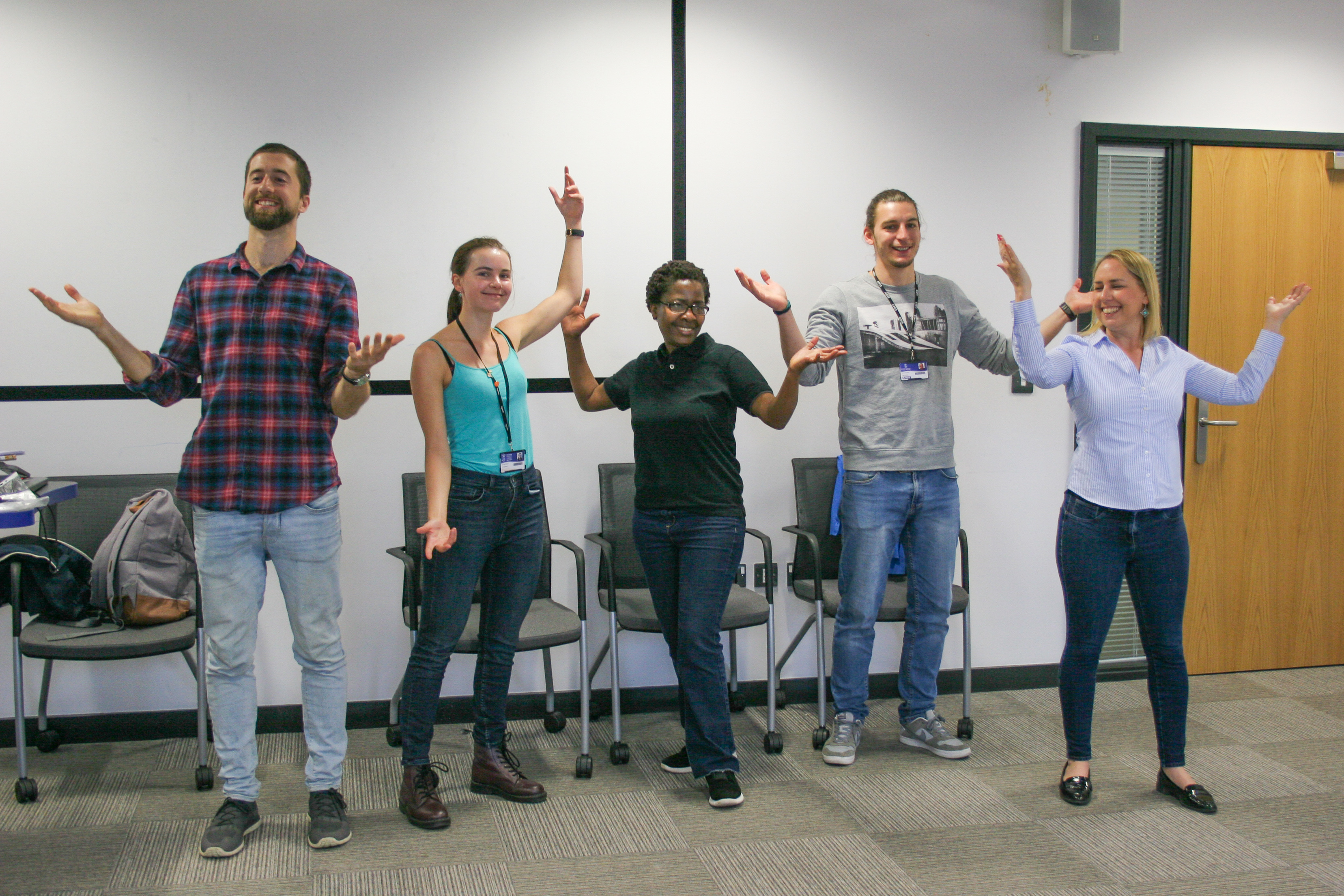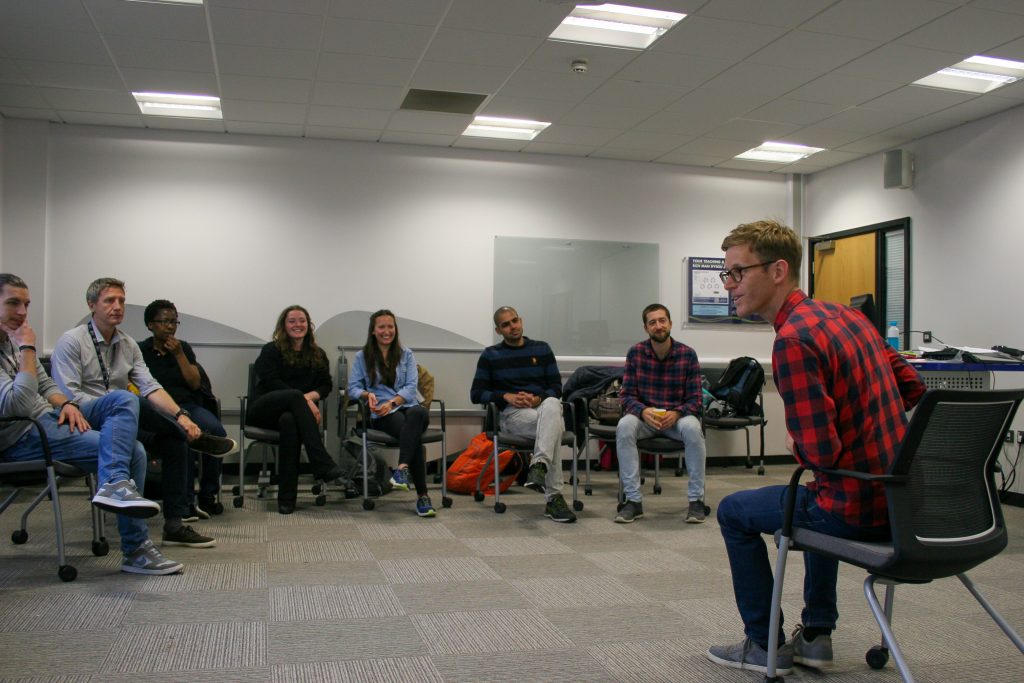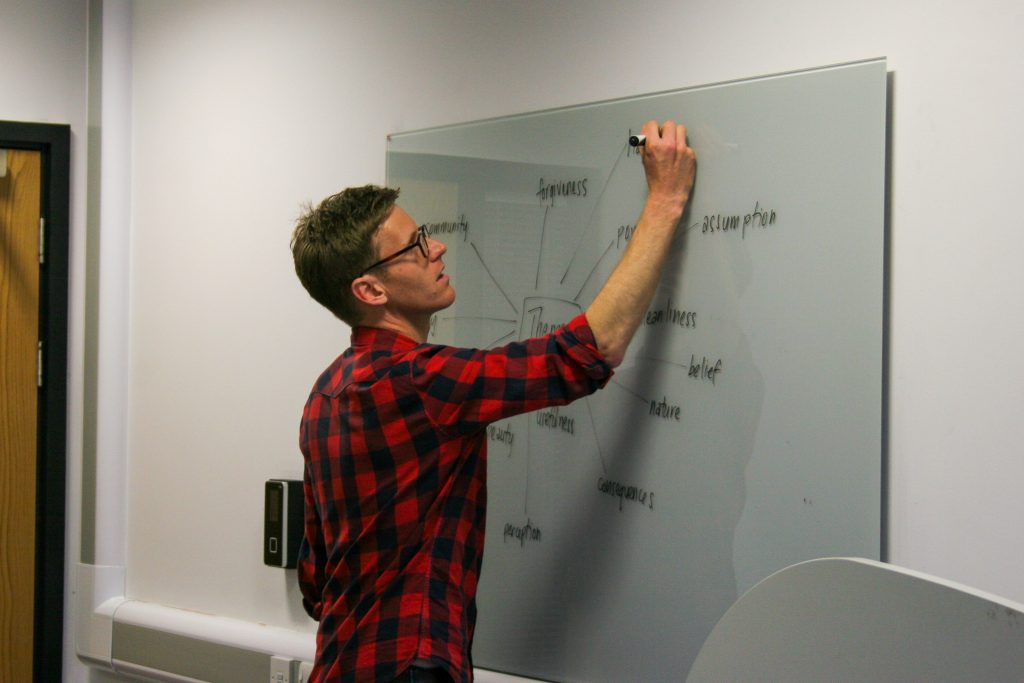Before we can install any buildings in India, we need to make sure that the receiving communities are fully on board. Without taking into account the human, historical, and social contexts, any new structures and technologies we introduce risk being rejected. We therefore need to involve residents in the process from the get-go to generate a feeling of community ownership over the buildings. To ensure that public involvement is carried out effectively, we drafted in some experts. The PIPERS of SUNRISE is a social sciences-led sister project set up to explore, identify, and embed public involvement and engagement within the wider SUNRISE project. However, we decided that we could all learn a bit about community involvement, social scientist or not.
This is where Cap-a-Pie come in. They are a theatre company that specialise in ‘bringing people together to take part in a democratic creative process’. This includes hosting workshops for academics on arts-based community engagement methods. Essentially, the workshop uses something called ‘creative enquiry’ to explore the complex topics of identity, community, our relationship with our environment, and so on. Brad McCormick, Cap-a-Pie’s creative director, came to Swansea for the morning to direct the workshop.
After we all introduced ourselves and what we do by coming up with a simple gesture to represent our field of research, Brad read us a short children’s story. He explained that children’s literature is a useful tool to open up discussion because it can present complex ideas in a simple way. We discussed the story’s meaning as a group and picked out key themes to focus on such as community, forgiveness, happiness, and regeneration.
We then used these themes to test out our acting skills. In groups, we first ‘moulded’ each other into statues representing one of the themes, then came up with a series of simple gestures representing three of our themes and acted them out in a narrative sequence. It was both challenging and eye-opening figuring out how to engage with these layered, abstract ideas without using our words.
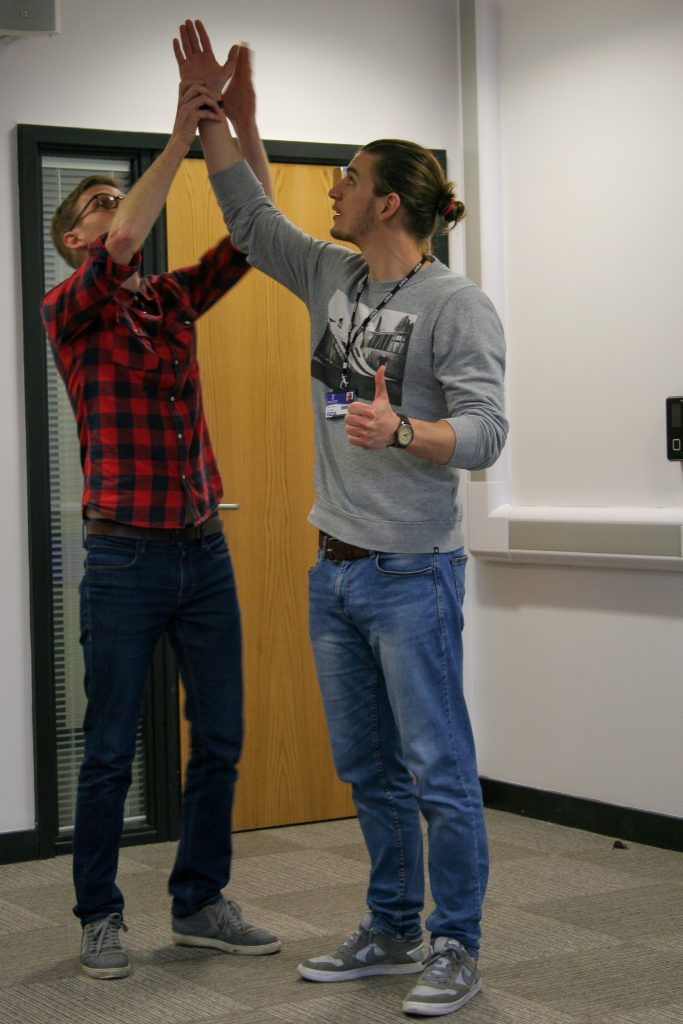
‘Happiness’ 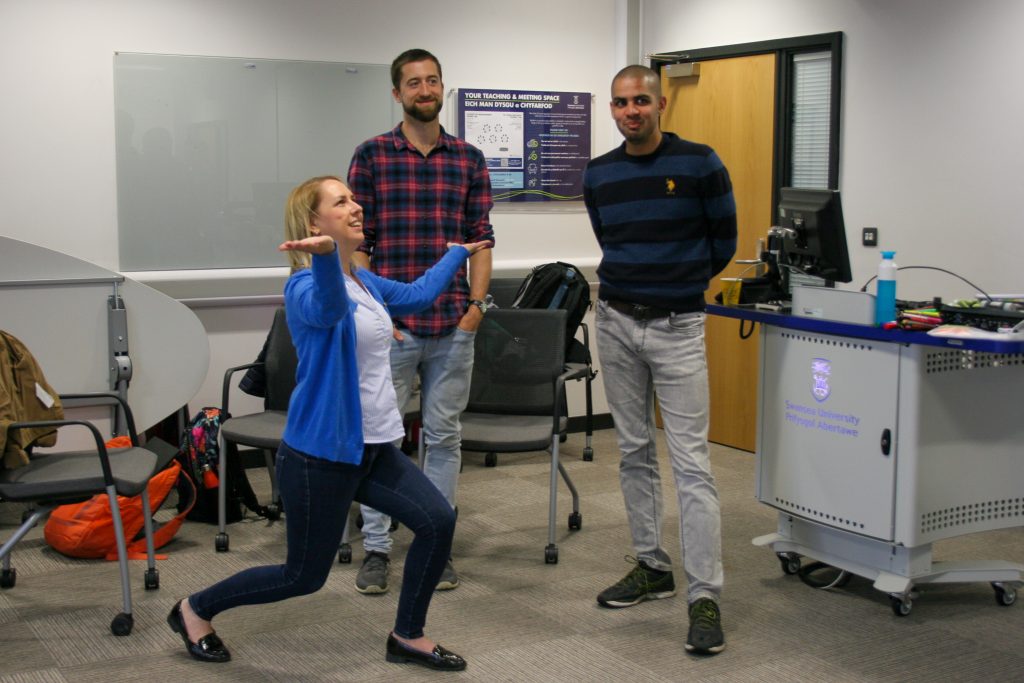
‘Beauty’ 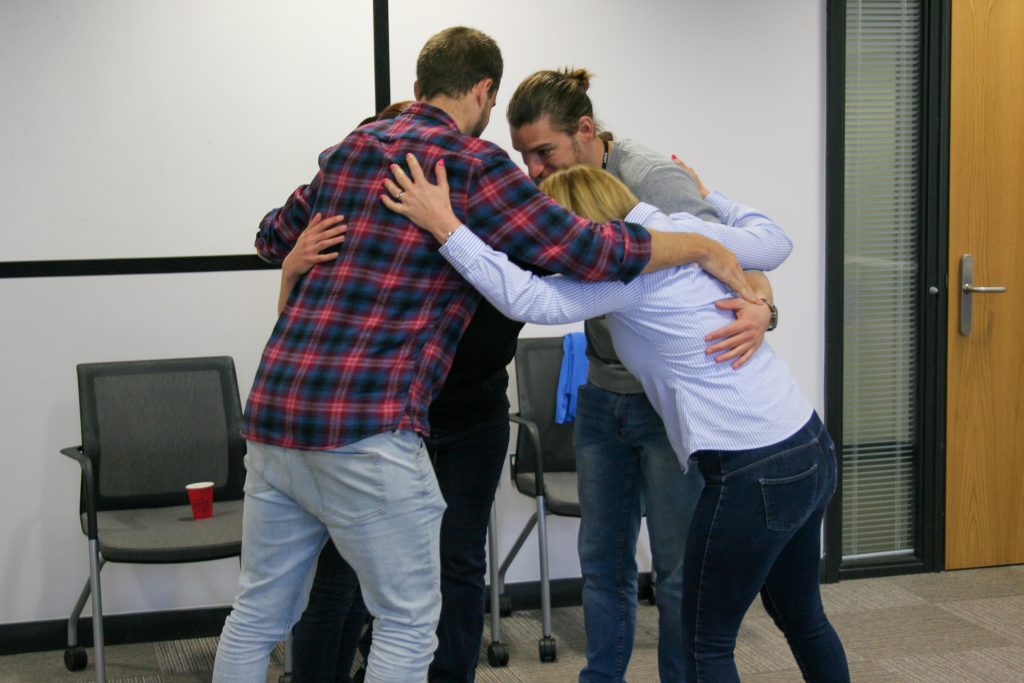
‘Community’
Next we came up with several philosophical questions to discuss based on the themes we’d selected earlier, and voted on one question to discuss in detail, which was: “Should we pursue happiness to the detriment of all other things?” This exploration led to further penetrating questions such as how you should define happiness, whether you should pursue happiness at the expense of others’ happiness, and the difference between short-term and long-term happiness.
Following the philosophical discussion, we flexed our artistic muscles once again. For an exercise called ‘location mapping’, we each drew our favourite place in Swansea and laid the drawings out on the ground geographically. There were several images of beaches in the Gower, but also of people’s homes and gardens. We were then asked to imagine an offshore wind farm was being installed off the Gower coast that would provide jobs and power for Swansea residents. Our task was to come up with a list of pros and cons for the proposed wind farm and to prioritise them from most to least important. For example, an important benefit was that it would help reduce fuel poverty in Wales, but a significant downside would be its potential negative effect on wildlife.
Finally, we were asked to choose one improvement we would like to see in our community. This exercise was called the ‘town hall’. Suggestions ranged from less litter in the streets and more community events, to increased open mindedness and integration among demographics.
The workshop provided the SUNRISE team with an eye-opening glimpse into the kinds of activities that may be used when engaging with a new community. These arts-based methods are especially important when communicating abstract ideas across language and cultural barriers, such as in a village in rural India. Not only will these involvement methods help us ensure the sustainability of our solar buildings within the community, but also help us measure their social impact and define their success beyond simply economical terms.

